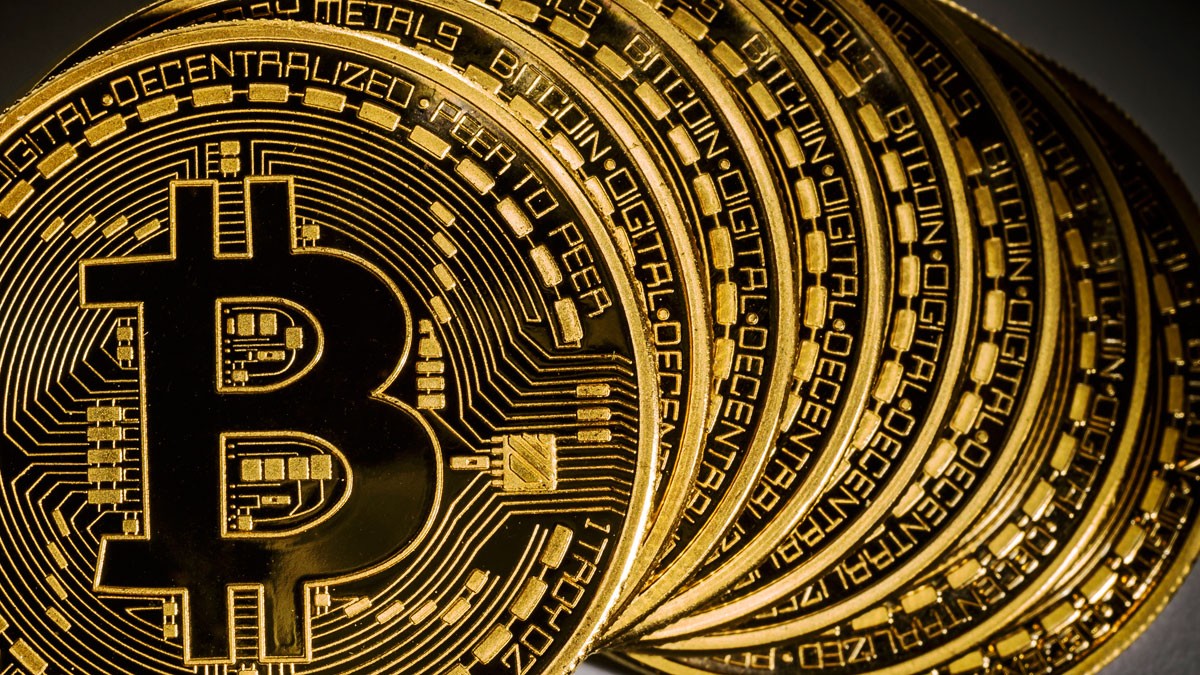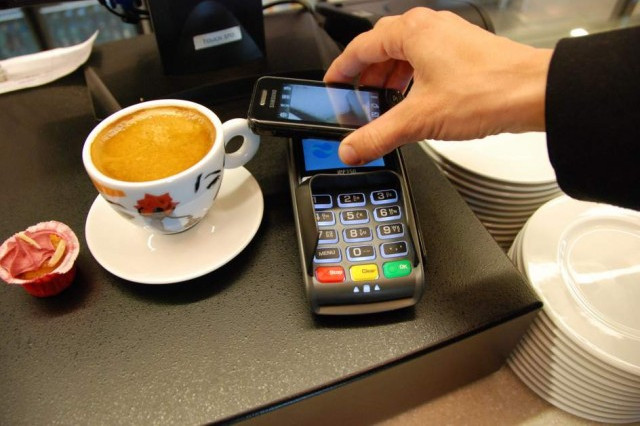In recent years, we have witnessed the inception and proliferation of so-called cryptocurrencies, a neologism used to refer to what we might more commonly call "virtual currencies".

These are currencies that, unlike those to which we are accustomed in our day-to-day affairs, do not have a physical support, but rather exist in the form of computational bits and whose issuer -and this is their fundamental disruptive characteristic- is not legally recognized for the issue of legal tender money. Some of these coins are limited to the virtual communities that have created them -as may be the case with some online gambling clubs- and there are those that are proliferating and can also be used to make transactions outside the virtual community, the most popular of which is the Bitcoin.
It is precisely this latter type of virtual currencies that has recently attracted the attention of the media, and which is also the monetary authorities' spotlight. Bitcoin is a virtual currency that is based on a technology called Blockchain, which ensures that the same currency can only be used once in each transaction. These transactions are stored in a network distributed among different users, whose network of "guardians" -known as miners- and are rewarded with additional Bitcoins, a previously-established remuneration that grows at a decreasing rate, implying that the Bitcoins supply is limited. Specifically, it will never reach 21 million coins. Other virtual currencies of this type have appeared in the wake of Bitcoin, in many cases as an instrument of business financing: the so-called Initial Coin Offering (ICO).
This dynamic leads us to consider whether these virtual currencies can become the money of the future. There are several considerations to take into consideration in relation to this issue, but an initial assessment of the advantages and disadvantages of generalizing the use of such virtual currencies for ordinary transactions leads us to be sceptical of their potential scope to be used as money in advanced economies. Here, the problem is not so much in the fact that the issuer of these currencies is not a recognized financial institution but rather in the actual functioning of these currencies as a means of exchange, that is, as money.
Bitcoin is a virtual currency that is based on a technology called Blockchain, which ensures that the same currency can only be used once in each transaction
Trust is fundamental
Money is nothing more than something we can use to buy and sell products, thus avoiding the disadvantages of direct exchange or barter. In this sense, any easy-to-transport object could be used as money. In fact, precious metals have historically been used for this purpose, mainly gold and silver. This is a form of commodity money as it has value in itself. However, the money that is in circulation in modern economies is fiduciary money, that is, it has no intrinsic value -it is a piece of paper or metal without physical worth; its value lies in the confidence that others will accept these objects in exchange for the products that we want to acquire.
The fact that the Euros that we use habitually have the status of legal money helps, but it is not a sufficient condition, nor is it a requirement for these notes and coins to be accepted for something. More than this, the use of a piece of paper lacking an intrinsic value to make exchanges is a social convention, such as driving on the right (or left) or wearing black when mourning. They may be regulated or not, but their effectiveness is based on an agreement.
Hence, trust is a fundamental element when money is fiduciary: if these items that we use today as money lose this quality, then they are simply worthless. However, whether it has value in itself or not, money is an instrument that serves as a means of change in an economy. That is its fundamental function but not the only one; There are two other functions that are derived from this quality, but not because of this are they any less significant. First, money is the unit of accounting in the economy; it is the unit of measure that we use to get an idea of the value of what we have, what we owe, and to know if something is relatively expensive or cheap. Secondly, money is a deposit of value; it can help us to buy things in the future, not just today.
The fact that the Euros that we use habitually have the status of legal money helps, but it is not a sufficient condition, nor is it a requirement for these notes and coins to be accepted for something
The question here is how the new virtual currencies fit into this fiduciary money scheme that characterizes the monetary systems in our economies. Nowadays, we can argue that virtual currencies -and in particular the Bitcoin- work, at best, as parallel money. They are a means of change that are accepted when carrying out transactions in certain areas of electronic commerce, although also but to a lesser extent, in traditional trade, as an alternative to legal tender money.
Thus, these virtual currencies co-exist with the currencies of each individual country, but with the added advantage of being global. As we have pointed out, the fact that a currency has the support of the monetary authorities does not imply that it has to necessarily be accepted by users, nor indeed the only one that they accept. And that goes for any form of money. Suppose in our neighbourhood community we all agree to use cigarettes, instead of Euros, to make exchanges when appropriate. In this case, the cigarette would have the function of money within our community, outside the Euro. With this example I only intend to emphasize that different types and forms of money are possible provided they are used as a means of change, beyond "legal" money. And also that, in this sense, virtual currencies are nothing new.
In fact, I have not chosen cigarettes at random, rather because their use as commodity money has been documented in prisoner of war camps. The difference is now in scope, as the community of potential users of virtual currencies extends globally. In the case of cigarettes, another difference is that they have value in themselves -they can be smoked- whereas Bitcoins and other currencies would be unregulated fiduciary money, since in reality they are mere bits of information stored in a computer. This is an element to keep in mind as we will see.

However there are cases in which parallel money has not been commodity money. Some will remember the Argentine "patacon" (a sort-of banknote/bond): in the face of the lack of liquidity during the 2001 crisis that led to the "corralito" (freezing of bank deposits), local authorities in Buenos Aires decided to issue "patacon" bonds that for a time were used by many the general public as parallel money to the Argentine peso.
Therefore, parallel money can also be money devoid of intrinsic value and base its use fundamentally in the confidence of users. This is essentially the case with virtual currencies. I say essentially, since some economists have argued that currencies such as Bitcoin, given the limitation of their supply, also share certain traits of commodity money. But this should not obscure the fact that there are only bits behind what these coins represent.
Japan promotes Bitcoin use
A first element that makes me doubt the viability of virtual currencies used as everyday money is that parallel money has only achieved a significant penetration in exceptional circumstances during economic, social and institutional crisis, or in the extreme conditions which I referred to previously, in prison camps. In other cases, there is little incentive for the general public to abandon the use of legal tender and substitute it for other forms of money. In fact, Bitcoin is accepted in a barely hundred shops in large urban agglomerations such as Madrid or Paris. Consumers find few advantages (if any) in adopting this currency, while there are certain costs of entry (downloading applications, getting to understand the mechanism, and so on).
For now, the use of Bitcoin and other virtual currencies as a form of money is residual in most economies, so they cannot be taken into consideration as generally-accepted means of payment. In fact, increasing its use outside any government recommendation would not be a good sign. The only country that has promoted Bitcoin use of to try to generalise it among users is Japan, where the authorities have recognized this currency as a means of payment, and it is already accepted in a significant number of businesses. It is not irrelevant to point out here that the Japanese are the leading investors in this currency. But Japan as a country is an exception, and in most economies, virtual currencies cannot be regarded as money at the level of the whole economy, since their use is limited to certain areas.
However, we can hypothesize that consumers would start using this type of virtual currency in a generalised way, and that all traders would accept them as a means of payment for transactions. Another problem would arise at this point, derived from the decentralised issuance of these currencies. If multiple virtual currencies were in circulation, different users could use different currencies, each with a value that would depend on their relative scarcity. If this phenomenon were generalised throughout the whole economy, money would lose its usefulness as a unit of account, since there would be multiple measures depending on the currency used.
The fact that a currency has the support of the monetary authorities does not imply that it has to necessarily be accepted by users, nor indeed the only one that they accept
Its use as a means of payment is modest
Although its use as a means of payment is even now quite modest, the present success of virtual currencies such as Bitcoin is mainly due to its use as an investment instrument. The price of Bitcoin in relation to the Euro has reached record levels in recent months because some investors have considered it a safe haven.
The limitation of the Bitcoins in circulation is helping to keep its price high. However, these investments are extremely risky due to the volatility that the Bitcon exchange rate has shown with respect to legal tender currencies. These sudden movements are due to sudden losses of confidence in the virtual currency, or sudden waves of euphoria due to external crises. There is no doubt that we may be witnessing the formation of a kind of financial bubble, examples of which are not uncommon in economic history: the investment of astonishing amounts of money into objects with little or no intrinsic value. The proliferation of these currencies as a financial asset should reflect on the appropriateness of their regulation.
In any case, such accentuated volatilities such as the one we have just seen are incompatible with the fact that a virtual currency like Bitcoin can constitute an proper deposit of value, insofar as we consider it money.
All in all, the future of virtual currencies that have emerged in recent years in relation to their use as money in developed economies is certainly doubtful because they only fulfil the three basic functions of money quite imperfectly, that is, exchange, unit of accounting and deposit of value. Its lack of functionality is the reason why these currencies are not being used in a generalised way as a means of exchange, nor are they likely to be in the future.

Furthermore, if only one of these virtual currencies were commonly accepted, other destabilizing elements might emerge at the macroeconomic level. For example, if the selected currency happened to be Bitcoin, deflationary tensions could be generated due to the limitation of its supply. In more general terms, if any of these currencies achieved significant acceptance, central banks would lose control of monetary policy, and thus lose much of their effectiveness in controlling inflation.
Moreover, they would lose an effective tool to moderate economic cycles, given the theoretical consensus that exists about the effects of monetary policy on the real economy in the short term. That is why monetary authorities have to remain vigilant in the face of the proliferation of virtual currencies.
Taking advantage of technology
Although I have misgivings about these currencies becoming the money of the future, I do think that it is feasible for Central Banks, and in particular the European Central Bank, to take advantage of the technology behind Bitcoin and other virtual currencies -or developments thereof- for the cash currently in circulation to be gradually replaced by virtual "Euros". It is likely that in the coming decades, as consumers become increasingly digital adepts, we will see the disappearance of physical money as we know it now.
Few would doubt the benefits of the disappearance of cash in terms of reducing tax fraud, all of which should lead to an improvement in public services within the framework of the welfare state. Beyond the promise of a currency for a citizen-controlled government, which underlies the development of Bitcoin, the new technological possibilities should lead to monetary systems with functional and digital currencies, currencies that allow passing on some of the costs of the use of cash.
The benefits of the disappearance of cash in terms of reducing tax fraud are undoubted, and would lead to an improvement in public services
And it is interesting to note that the technology that allowed creating virtual money would undoubtedly also facilitate the realization of Keynes' age-old dream, reworked more recently by Nobel laureate Robert Mundell, about the development of a single world-wide currency. But that means going another step further. We shall see.









